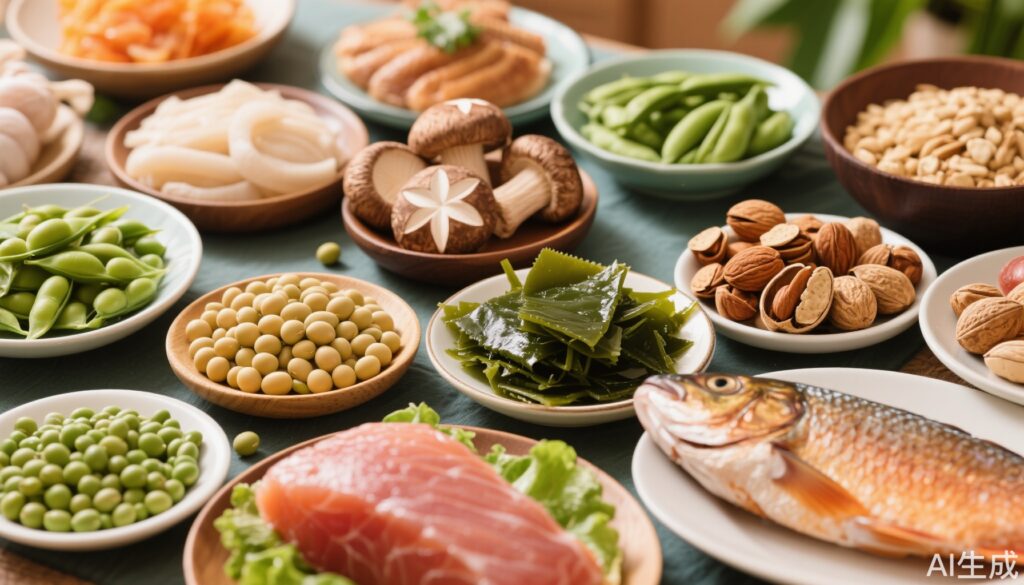Introduction
Women’s breast health is an important aspect of overall well-being, requiring lifelong care. Hormonal fluctuations and lifestyle factors often contribute to discomfort or breast conditions. Fortunately, research highlights the role of diet in supporting breast health.
The Importance of a Balanced Diet
The foods we consume can impact the hormonal balance and immune system, both of which are crucial for breast health. Incorporating specific nutrient-rich foods may help reduce risks associated with breast conditions and improve overall resilience.
Key Foods for Breast Health
Soy and Soy Products
Soy contains isoflavones, plant-based compounds that can moderate estrogen levels in the body. Studies suggest that consuming soy may alleviate breast discomfort and potentially reduce risks of hormone-related breast issues.
Mushrooms and Edible Fungi
Mushrooms like shiitake, black fungus, and white fungus are natural immunomodulators. They contain bioactive compounds that enhance the immune system and exhibit anticancer properties.
Seaweed
Rich in iodine, seaweed can support endocrine health by regulating thyroid function, which indirectly affects breast tissue health. Its consumption may also aid in managing breast fibrosis.
Nuts and Seeds
Nuts and seeds, including almonds, peanuts, and sunflower seeds, are packed with antioxidants and vitamin E. These nutrients protect breast tissue from oxidative stress and promote elasticity.
Fish and Seafood
Fatty fish like salmon and mackerel are excellent sources of omega-3 fatty acids and essential minerals. These nutrients strengthen the immune system and support healthy hormonal balance.
Dairy Products
Milk and its derivatives provide protein and calcium, essential for preventing inflammatory conditions in breast tissue. Opting for low-fat options can maximize health benefits.
Conclusion
Incorporating these foods into a balanced diet can play a significant role in promoting breast health. Coupled with a healthy lifestyle and regular medical check-ups, dietary choices serve as a powerful ally in ensuring well-being.



